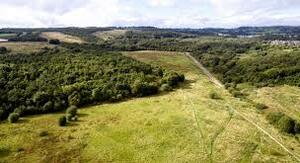Country Park Permit Price Rise, Enhanced Assess, Plan, Do, Review
Written by Hitmix Local News on 19 March 2024
From 1st April, Annual car parking permits for country parks are to rise by half a penny a day after being frozen for five years. A 12-month permit for all sites will rise by £2 per annum at Staffordshire County Council’s country park car parks.
Charging is in place at Chasewater and parts of Cannock Chase, but its introduction at other country parks and greenways, including Apedale, Deep Hayes, Greenway Bank, Froghall, and the greenway at Rudyard, has been delayed until later this year despite being approved several years ago.
Victoria Wilson, Staffordshire County Council’s Cabinet member for Communities and Culture, said: “We consciously delayed the introduction of charging in the north of the county to support communities during the Cost of Living crisis and when charging is finally introduced later this year it will be on a voluntary basis for an initial period of two months. “We continually need to invest in the county council’s extensive countryside estate to maintain the country parks, greenways and picnic areas as one of the jewels in Staffordshire’s crown for all to enjoy.”

_________________________________________________________
Children needing help in mainstream classrooms are already benefitting from a new project providing extra support. Staffordshire County Council is funding schools to step in at the first opportunity to help children with special educational needs progress at their local mainstream school. And in the first few months, 80 children have been supported already. It’s estimated up to 800 children might benefit across the county each year at a time when the demand for special educational needs support in Staffordshire schools has risen by 30 per cent in the last five years, surpassing the national average.
More than 21,000 children in Staffordshire require support in school, which is approximately 16 per cent of the total school population.
The new approach, called ‘Enhanced Assess, Plan, Do, Review’, has been developed in partnership with parents, carers, healthcare professionals, schools, and colleges, with over 300 individuals contributing their thoughts and feedback.
More than 900 professionals joined training sessions throughout December to ensure they are equipped to effectively use this new approach in their schools.
£1.2m has been identified from existing budgets to support the new approach and the authority is committing educational psychology resources as part of the process.
What is the Enhanced Assess, Plan, Do Review Pathway
The EAPDR Pathway sets out a clear methodology to ensure schools and educational settings are supported to access further additional advice, support and resources in order to meet the needs of children and young people in their setting.
The enhancement is a focused APDR process that places outcomes at the centre of the work undertaken to support the child or young person and makes resources available to schools and settings so that they can meet needs quickly and effectively.
The primary purposes of the pathway are to:
- Support settings to meet the needs of children and young people in their local mainstream school.
- Ensure children and young people have their needs met earlier.
- Improve co-production in how we work with children, young people, and families.
- Improve multi-disciplinary working and partnerships.
- Improve the ‘tell it once’ approach by reducing duplication of information.
- To record pre statutory interventions in a centralised document, capturing Assessment and learning about the child over time, accessible by all professionals involved, along with parents / carers.
- Place holistic outcomes at the very start of the graduated approach to meeting children and young people’s need.
- Ensure equity of practice across the county and place the child, young person, and family at the centre of discussions, planning and decision making within the context of their learning environment.
- Improve the quality and timeliness of EHCNAs if they are required.
- Improve the quality of EHCPs (if an EHCNA suggests that this is required.)








